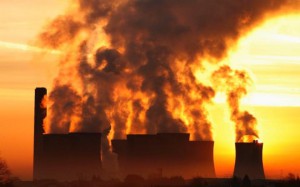Eurelectric, the European association of the electricity sector, has decided by a large majority that its members will not build new coal-fired power plants from 2020 onwards. However climate protection goals can only be achieved by decommissioning coal-fired power plants.

On April 5th 2017 Kristian Ruby, Eurelectric’s secretary-general, announced that Eurelectric’s board of directors had decided not to build any further coal-fired power plants. “26 of 28 member states have stated that they will not invest in new coal plants after 2020” said Ruby. Only Poland and Greece, who generate 80% of their electricity with coal-fired plants, rejected the common position. Nevertheless, these two countries along with the industrial representatives from the other 26 member states have also decided to produce 100 percent carbon-neutral electricity by 2050.
Eurelectric represents 3,500 companies of the European power sector with a combined value of over EUR 200 billion. That is one reason why the binding commitment of the members under the umbrella of the association is pioneering. The German power industry is represented by for example E.ON CEO Leonhard Birnbaum (Source: Energate).
Currently six coal-fired power plants are under constructions in EU member states which are affected by the Eurelectric decision: Datteln 4 in Germany, four power plants in Czech Republic and one in Bulgaria. Three more are planned, one in Scotland and two in Germany. In addition ten coal-fired power plants are planned or under construction in Poland, two in Greece and 20 in non-EU countries of Balkans (Source: Freitag).
The association, however, is opposed to the demands of the European Commission’s winter package on the emission restrictions for power plants which are allowed to participate in capacity markets. The European Commission only allows power plants with emissions of less than 550 grams of CO2 per kWh to participate in capacity markets from 2020 on. Hard coal- and lignite-fired power plants with CO2 emissions of 949 g/kWh and 1153 g/kWh respectively would drop out here (Source: Energate).
In order to get closer to the climate protection targets, Germany is working towards phasing out worldwide subsidies for coal, natural gas and oil as parts of the country’s presidency at the G20 summit. According to the Federal Environment Agency, however, Germany itself pays climate-damaging subsidies in the double-digit billions every year – with a rising tendency. “We have huge blind spots in the area of minimizing subsidies for years now”, said the president of the Federal Environment Agency Krautzberger. (Source: Energate)
Climate Analytics reaches the conclusion that a quarter of the 315 coal-fired power plants in the EU have to be shut down by 2020, another two quarters by 2025 and the last quarter by 2030 (including power plants in Poland and Greece), in order to fulfil the Paris Agreement. Although the Eurelectric decision will surely have a major impact, it is still a long way towards a completely decarbonised electricity sector.



